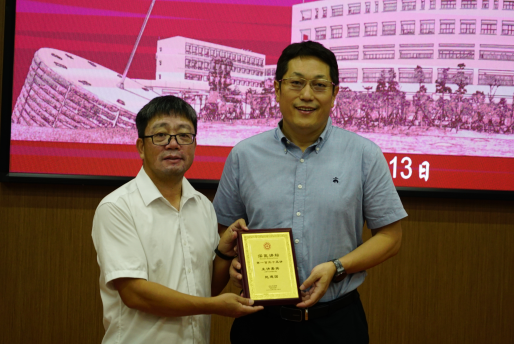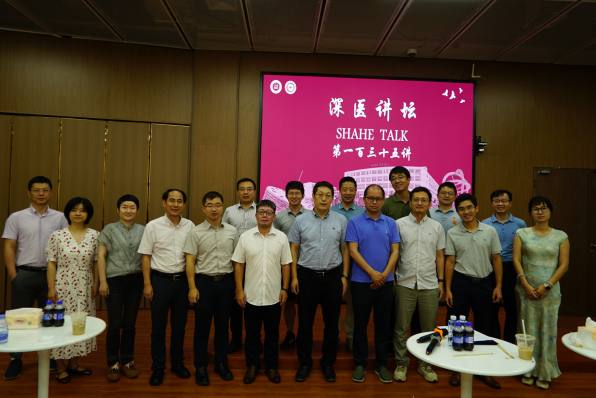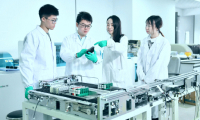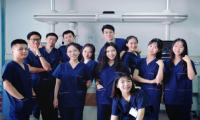Shenzhen University Medicine Forum:Gene Editing of Model Large Animals and Biomedical Applications
On the morning of June 13, 2025, Professor Zhao Jianguo from the Institute of Zoology, Chinese Academy of Sciences (CAS), served as the guest speaker for the 135th lecture of the Shenzhen University (SZU) Medical Forum. His academic lecture, titled Gene Editing of Model Large Animals and Biomedical Applications, was held in Building A7, Shahe Yuan, Lihu Campus, SZU, at the invitation of Professor Chen Xinchun (School of Basic Medicine, Medical Department, SZU).

Professor Zhao Jianguo opened his lecture by explaining how miniature pigs serve as excellent representative large animal models, given that pigs share a high degree of similarity with humans in anatomical structure, physiological function, and organ size. He went on to explain that gene editing in pigs can now be used to reduce pig-organ transplant rejection. Moreover, he discussed how chemical induction is an effective tool for studying gene function, and that gene editing, by influencing genetic and epigenetic factors, has applications in both biological breeding and biomedical research.
Professor Zhao went on to highlight several examples from his research. He noted that oral acitretin can improve the survival of mutant pigs with harlequin ichthyosis (HI), and that a congenital hypothyroidism pig model can simulate the development of human brain defects during the glial cell generation stage. He also discussed how mutations in the human SLC13A1 gene can lead to dwarfism in children, and how paternal transgenerational inheritance can be studied using pig models. In addition, he reported that methionine restriction causes developmental defects and dyslipidemia, which can be passed on transgenerationally through abnormal sperm methylation—but can also be repaired. Finally, he highlighted the role of UCP1 in maintaining body temperature and thermoregulation. This academic report deepened students’ and faculty members’ understanding of gene editing in large animal models and their biomedical applications, and sparked an animated discussion among attendees.

Brief introduction to the speaker
Professor Zhao Jianguo is a researcher at the National Key Laboratory of Organ Regeneration and Manufacturing, Institute of Zoology, Chinese Academy of Sciences (CAS). He is a recipient of the National Natural Science Foundation for Distinguished Young Scholars, a distinguished talent recruited under the CAS "One Hundred Talent Program", nd a chair professor at the University of CAS. His primary research focuses include pig gene-editing and breeding using forward and reverse genetics strategies, the development of biomedical models, and xenogeneic organ regeneration. In recent years, he has published over 30 SCI papers in leading journals such as Science Advances, PNAS, Blood, National Science Review, EMBO Molecular Medicine, eLife, Journal of Molecular Cell Biology (two papers), Cell Discovery, Human Genetics, Biology of Reproduction, and Reproduction. His research has been widely followed and positively covered by international mainstream media. Professor Zhao serves as Associate Editor of AROH and sits on the editorial boards of Journal of Molecular Cell Biology, Journal of Integrative Agriculture, Fundamental Research, and Hereditas(Genetics). He has served as chief scientist for major projects funded by the National Natural Science Foundation, the Ministry of Science and Technology’s "863" Program, and the National Key Research and Development Program. He is also a member of the expert group for the key special project "Research and Development of Biomedical Materials and Tissue/Organ Repair and Replacement," a reviewer for the Major Project of Transgenic New Variety Creation under the Ministry of Science and Technology, and a member of the Pig Specialty Committee of the National Livestock and Poultry Genetic Resources Committee. His honors include the 17th Royan International Research Award (2016) and the First Prize of the Scientific Research Award from the Chinese Association for Laboratory Animals (2020).








用户登录
还没有账号?
立即注册